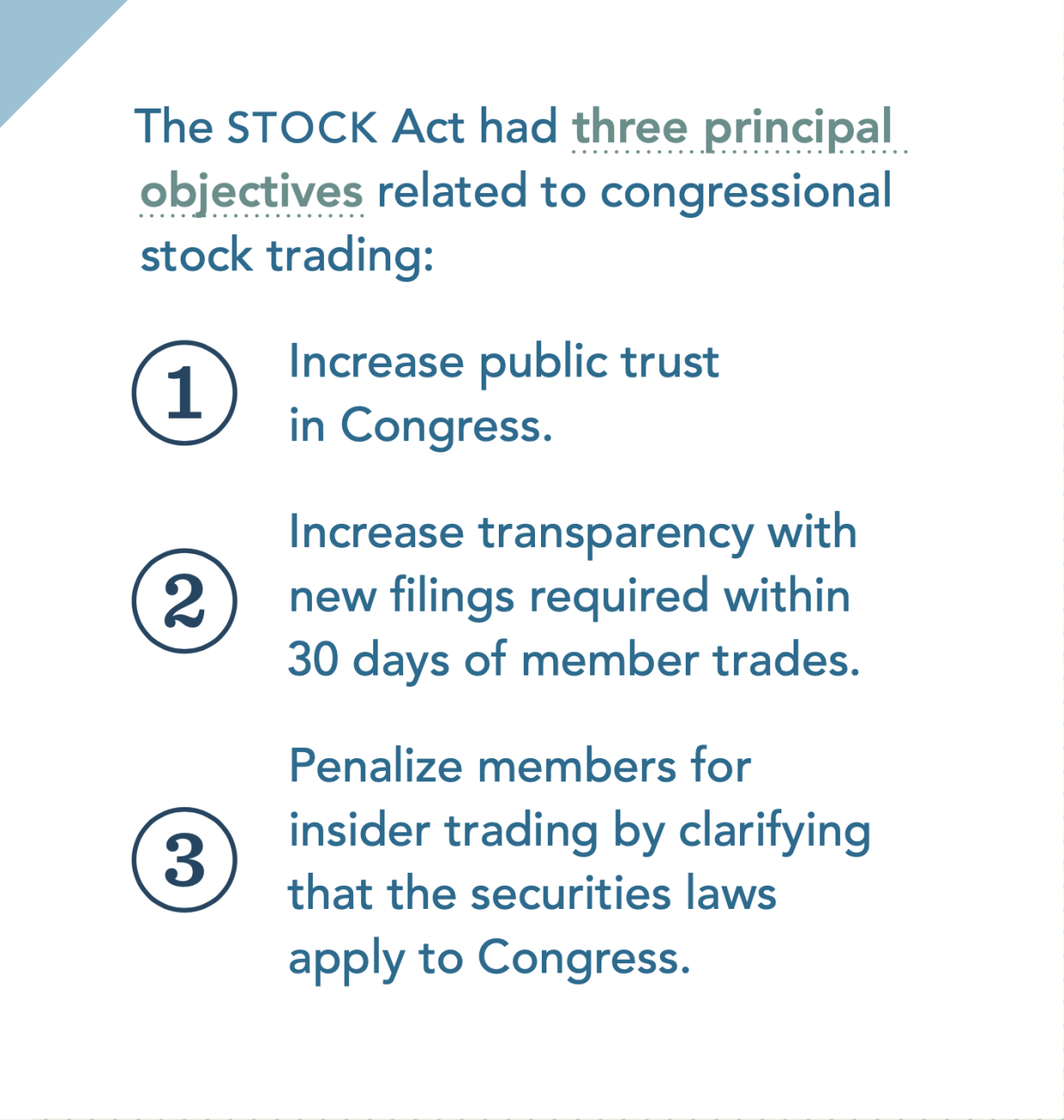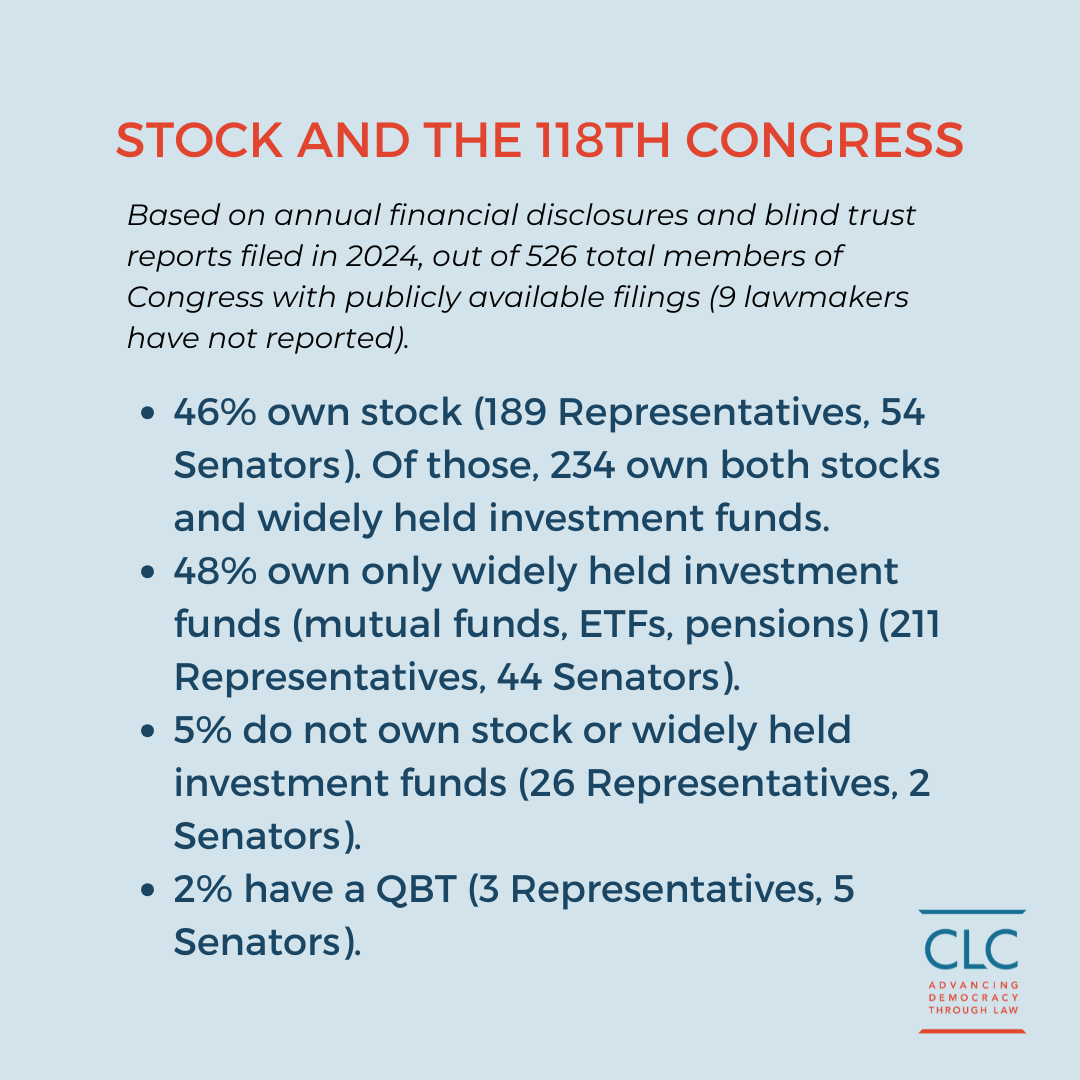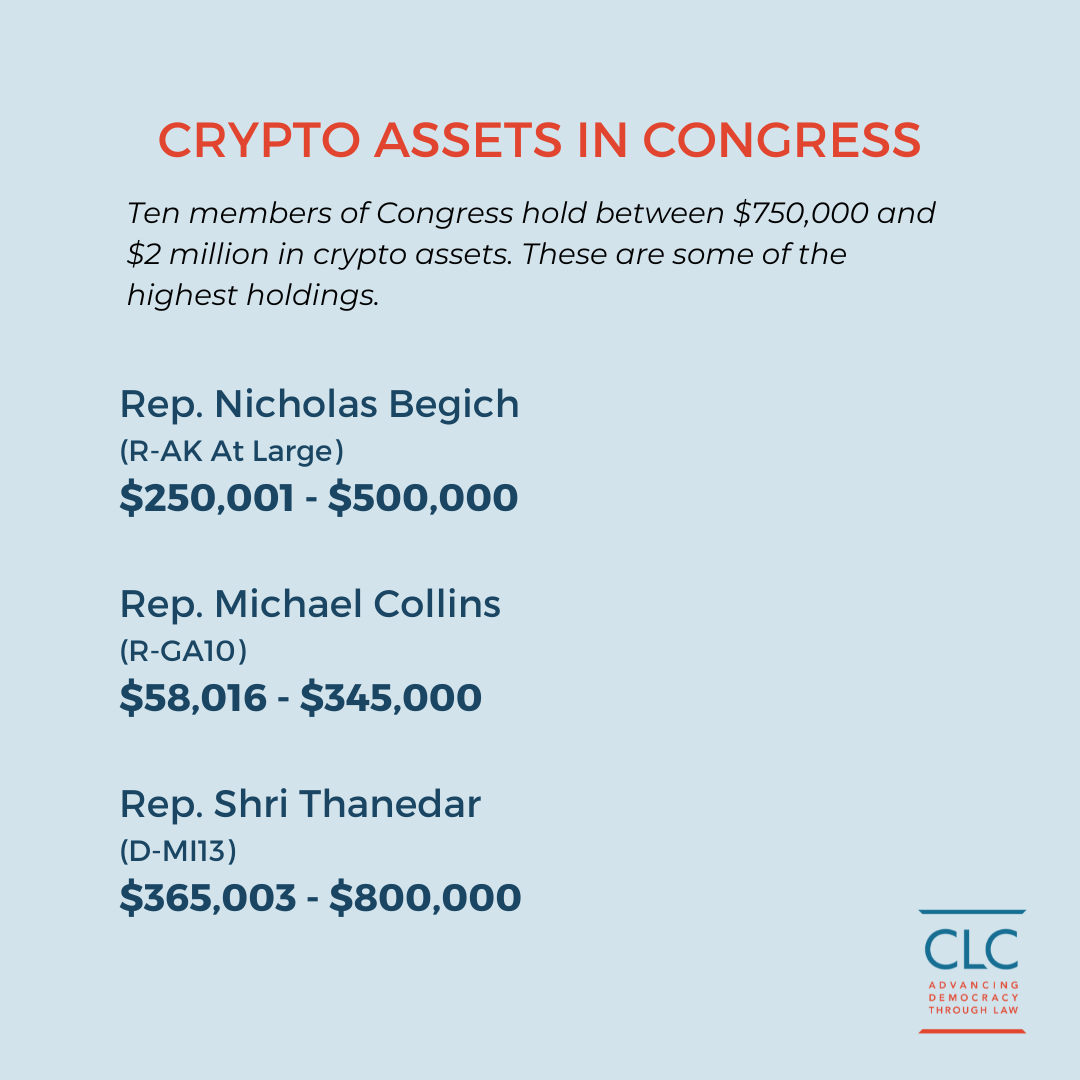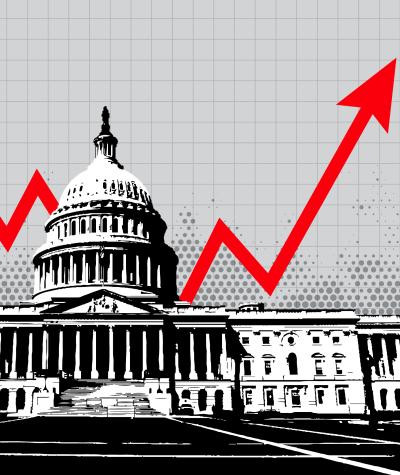Elected officials craft laws that directly impact the lives of Americans. Voters have a right to know lawmakers’ decisions are in the public’s best interest, not for personal financial gain.
Congress (with Campaign Legal Center's support) passed the Stop Trading on Congressional Knowledge (STOCK Act) in 2012, following more than 10 years of allegations that members of Congress were insider trading.
Over a decade after its passage, the STOCK Act has not lived up to its promise of preventing the appearance of corruption and has fallen short of ensuring the public that Congress is prioritizing the needs of everyday Americans over their personal wealth.
Now, members of Congress can stop this problem for good. To increase government accountability, Campaign Legal Center calls on Congress to pass the bipartisan Restore Trust in Congress Act and finally ban stock trading by sitting members and their families.
The Problem of Congressional Stock Trading
Members of Congress hold incredibly powerful positions that allow them to make policy decisions that impact all Americans. As a result, legitimate conflicts of interest may arise when an elected official has significant financial interests tied to an area over which they have significant influence.
Elected officials are also privy to information before the broader public and may be incentivized to use this information to line their own pockets before they use it to inform policymaking — like they did shortly after the onset of the COVID-19 pandemic.
The possibility that congressional information would be used for corrupt purposes is exactly what alerted the public to the problem with congressional stock trading — several members of Congress benefited greatly from stock trades made shortly after a closed-door briefing on the state of the economy prior to the Great Recession.
The STOCK Act — and the Failed Effort to Stop Insider Trading

Following public outrage and former President Barack Obama’s call for a ban on insider trading by members of Congress, the STOCK Act passed with overwhelming support and was signed into law on April 4, 2012.
The act requires members of Congress to file financial disclosures of their stock trades within 30 days (previously they were only required to file annual disclosures) and placed new penalties on members who used information for insider trading.
There is one major problem with this legislation: The penalty for a member of Congress violating the STOCK Act is $200 — a hardly impactful deterrence from the potential millions to be made off the stock market.
While the STOCK Act has helped expose the extent of potential conflicts of interest and provided the public with transparency into lawmakers’ financial activities, a lack of enforcement has stopped it from achieving the goal of curbing insider trading.
Representatives either hide their stock holdings in plain sight or receive no penalties when they do violate the law. No member of Congress has ever been prosecuted for insider trading under the STOCK Act.
Congressional Stock Trading Today

Nearly 15 years later, the STOCK Act has given us a clearer picture of just how many conflicts of interest our lawmakers have.
In the last congressional session, only 5% of senators and representatives combined did not own stock. A majority of freshman members in the 119th Congress own stock.
Stock ownership in Congress is a bipartisan problem. Out of the all the members of Congress who own stock, 59% are Republican and 41% are Democrats. For the full picture on stock trading today, check out our overview of stock ownership in the 118th Congress.
Campaign Legal Center uses this data to file complaints — 15 in total, representing between $14.3 million and $52.1 million in undisclosed or untimely disclosed stock trading — and call for accountability when a member of Congress appears to have either violated disclosure requirements or engaged in insider trading.
The stock holding patterns of members of Congress reflect how different wealthy special interests become increasingly intertwined with our politics at different times. The crypto industry poured more money into the 2024 election than it ever had before, close to $119 million.
The STOCK Act helps us understand how representatives — who may soon be considering legislation for this nascent technology — are tied to the industry. Ten members of Congress currently hold between $750,000 and $2 million in crypto assets.

For more information on the crypto industry’s ties to the current administration, check out CLC’s research into crypto assets in the current Congress.
The prevalence of stock trading, and the clear pattern of engaging with industries that are looking to expand their political influence, shows how the STOCK Act has not solved the problems with congressional stock trading. Rather, the transparency afforded to us by the STOCK Act makes it abundantly clear to the public that their elected officials carry enormous financial holdings — and therefore the potential for enormous conflicts of interest.
The 2025 government shutdown underscores this very point; while their constituents navigated the longest lapse of federal funding in history and shouldered consequences like missed paychecks and drained SNAP benefits, lawmakers engaged in nearly 200 trades, representing anywhere from $3 to $9 million in financial assets.
Solving the Problem
The public overwhelmingly wants reform: 86% of people across party lines support prohibiting members of Congress from trading stocks.
A bipartisan solution offers a pathway to vital reforms that can rebuild public confidence in our federal government. A bipartisan coalition of lawmakers in the U.S. House of Representatives have brought forward a new bill — the Restore Trust in Congress Act — to fully ban stock trading by lawmakers, their spouses and their dependents.
As long as sitting members of Congress are allowed to hold and trade stock connected to the industries they have a hand in regulating, the public will question whether their policy decisions are for the public’s best interest or their own personal financial gain. The House has an opportunity to address this bipartisan problem with a bipartisan solution — pass the Restore Trust in Congress Act and work with the U.S. Senate to deliver a final bill to the president’s desk.
Campaign Legal Center has called on Congress to ban stock trading by lawmakers for more than ten years and urges policymakers to finally deliver a guarantee to Americans that their elected officials are working solely for the public good.
